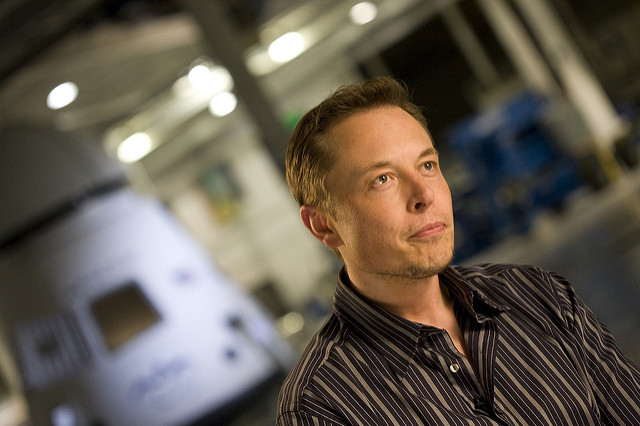- Elon Musk’s accusation that OpenAI’s nonprofit status is a “facade” to hide financial misconduct intensifies his legal battle, alleging misappropriation by co-founder Sam Altman.
- OpenAI’s shift to a public benefit corporation (PBC), removing profit caps and acquiring Windsurf for $3 billion, aims to strengthen its position against competitors like Google (GOOG, GOOGL) and xAI.
- Fidji Simo’s appointment as head of applications underscores OpenAI’s focus on scaling innovation, while Microsoft’s (MSFT) $13.75 billion investment faces potential revenue share cuts from 20% to 10% by 2030.

Elon Musk’s unrelenting criticism of OpenAI has cast a shadow over the AI pioneer’s recent strategic maneuvers, with the billionaire labeling its nonprofit status a “facade” to conceal financial misconduct. In a Wednesday court filing, Musk, a co-founder of OpenAI who now leads rival xAI, accused the company’s leadership, particularly Sam Altman, of “looting” and “profiteering” from its nonprofit structure. The allegations coincide with OpenAI’s decision to restructure its for-profit arm, appoint Instacart CEO Fidji Simo as head of applications, and acquire AI coding tool Windsurf for $3 billion, all while fending off competitors like Google (GOOG, GOOGL), Perplexity, and DeepSeek.
OpenAI’s complex governance, rooted in its 2015 founding as a nonprofit, has long been a point of contention. In 2019, it created a for-profit subsidiary, controlled by the nonprofit board, with a holding company owned by employees and investors. This structure ensured that Microsoft (MSFT), which has invested $13.75 billion, held no board seats or voting power. Profits exceeding caps were funneled back to the nonprofit, limiting returns for external stakeholders. On Monday, OpenAI announced it would transform its for-profit arm into a public benefit corporation (PBC), with the nonprofit retaining significant ownership and control. This shift eliminates profit caps, potentially unlocking greater returns for investors. The decision followed abandoned plans for a full for-profit conversion, prompted by dialogue with civic leaders and the Attorneys General of Delaware and California.
Musk’s legal salvo challenges the legitimacy of this restructuring. He argues that the PBC announcement, made shortly after a court scheduled his claims against OpenAI for trial, is a superficial move to obscure earlier misappropriation of nonprofit funds. The simultaneous removal of profit caps and the vesting of tens of billions in investments – originally contingent on a for-profit transition – further fuel Musk’s suspicions of executive malfeasance. OpenAI swiftly rebuffed these claims, telling Yahoo Finance that Musk’s lawsuit is a “bad-faith attempt to slow us down.” Meanwhile, Bloomberg reported on Tuesday that Microsoft, a key stakeholder, had not endorsed OpenAI’s initial for-profit plan. Additionally, TechCrunch noted OpenAI’s exploration of reducing Microsoft’s revenue share from 20% to 10% by 2030.
The restructuring controversy unfolds as OpenAI navigates a fiercely competitive AI landscape. Google’s Gemini models and AI Overviews, integrated into its search engine and available via Google Labs’ AI Mode, pose a direct threat to OpenAI’s ChatGPT. Meanwhile, upstarts like Perplexity and DeepSeek are vying for market share. To bolster its position, OpenAI acquired Windsurf, a $3 billion deal that enhances its offerings with an AI-powered tool to accelerate software development. This move signals OpenAI’s intent to expand beyond conversational AI into developer-focused markets, a critical step as generative AI remains a nascent, rapidly evolving field.
Leadership changes add another layer to OpenAI’s transformation. Fidji Simo, set to join later this year from Instacart, will lead the Applications segment, tasked with scaling traditional company functions amid growth. Simo, already an OpenAI board member, steps into a pivotal role as the company strives to maintain its edge. Altman, who accelerated her appointment due to a leak, emphasized her role in driving innovation. Simo’s challenge will be to ensure OpenAI’s offerings evolve swiftly enough to outpace rivals, particularly as Google and others integrate AI into consumer-facing products.
Musk’s accusations, while contentious, underscore broader questions about OpenAI’s governance and mission. His claim that the nonprofit is a “facade” taps into ongoing debates about the balance between public benefit and private gain in AI development. OpenAI’s PBC structure aims to align stakeholder interests while preserving its founding ethos, but Musk’s lawsuit suggests lingering distrust among early stakeholders. The legal battle, coupled with competitive pressures, places OpenAI at a crossroads. Its $3 billion Windsurf acquisition and Simo’s appointment reflect a proactive stance, yet the specter of Musk’s allegations and the complexities of its hybrid structure could complicate its path forward. As generative AI continues to reshape technology, OpenAI’s ability to navigate these challenges will determine whether it retains its leadership or cedes ground to rivals like Google and xAI.
WallStreetPit does not provide investment advice. All rights reserved.





